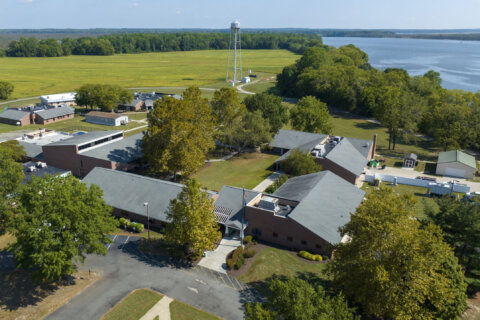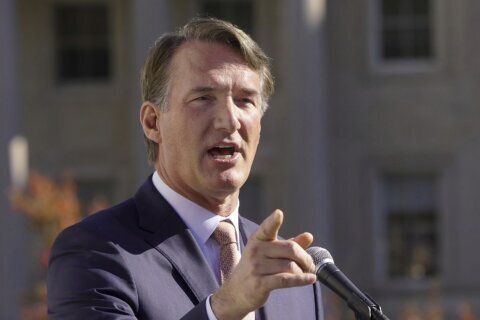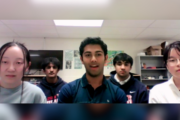RICHMOND, Va. (AP) — The American Civil Liberties Union of Virginia says it is making a financial investment unprecedented in its history for this year’s election cycle because of the implications November’s legislative races will hold for abortion access and other policy decisions in the state.
The organization — which supports abortion rights and does not issue candidate endorsements — plans to spend just over $1 million through Election Day on direct mail, digital ads and volunteer outreach to highlight candidates’ positions on abortion in five Senate districts and six House districts.
“We’ve never proceeded with this kind of investment and focusing on these races in this way. And we think it’s really critical because what happens this year determines whether abortion, reproductive rights will be safe for Virginians. And not only Virginians, but people from all over the South who are traveling to Virginia to access care,” Mary Bauer, the group’s executive director, said in an interview.
The independent expenditures by the ACLU — which is also highlighting school board candidates’ views on topics ranging from LGBTQ rights to classroom curriculum in five counties — is part of a flood of money into this year’s races that longtime observers say is staggering, even in a state with no contribution limits. Other outside groups that oppose abortion are making similar expenditures, including a recently announced $1.5 million pledge, aiming to shape the conversation around abortion.
Every General Assembly seat is on the ballot this year in what’s been a hard-fought election season, also the first to be held since the U.S. Supreme Court’s decision overturning Roe v. Wade. Both parties see a path to a possible legislative majority, and both public and private polling have suggested tight races in the dozen or so key battleground districts.
The makeup of the General Assembly next year will be determinative for a wide range of issues, including abortion policy.
Gov. Glenn Youngkin and fellow Republicans in the politically divided Legislature pushed unsuccessfully earlier this year for a ban on abortions after 15 weeks of pregnancy, with exceptions for rape, incest and the life of the mother. Virginia is currently an outlier in the South for its relatively permissive abortion laws, allowing abortions through the second trimester and restricting them in the third to cases in which three doctors certify the mother’s life is at risk or her mental or physical health may be “substantially and irremediably” impaired by continuing the pregnancy.
The Youngkin-backed limits were defeated in the state Senate, which is narrowly controlled by Democrats. The governor has pledged to try again next year — calling such legislation a reasonable consensus position — and many of the Republican candidates running in swing districts are on the record in support of his proposal.
Abortion-rights supporters say Virginia has become an increasingly important access point as other Southern states tighten restrictions, and they argue further limits here would infringe on women’s autonomy and impact their health. Democratic candidates in competitive districts have overwhelmingly centered their messaging to voters around protecting abortion access. They have broadly either pledged support for the current Virginia law or said they would like to see additional protections for abortion access codified in the state Constitution, a multi-year process that would require a voter referendum.
In each of the 11 targeted districts, the ACLU’s mailers point to a mix of voting records, public statements and political contributions to make the case that the Democratic candidate supports abortion rights and the Republican does not. None of the Republicans in the targeted districts responded to the ACLU’s questionnaire, the group said.
This cycle marks the first time the ACLU has made independent expenditures in a legislative election, Bauer said, adding that the group wanted to be “clear and transparent” about its spending. The expenditures are being reported on a rolling basis, meaning the full scope of the $1.25 million it plans to invest on messaging in both the legislative and school board races won’t be public until later.
An anti-abortion group, Women Speak Out Virginia — 2023, recently announced plans to spend on a similar scale in support of candidates who support the governor’s proposal.
The group, a political action committee aligned with the prominent national anti-abortion group Susan B. Anthony Pro-Life America, last week announced a $1.5 million campaign involving digital ads, and mail and phone outreach on behalf of GOP candidates who back the governor’s 15-week proposal.
“Hundreds of lives each year depend on pro-life Virginians showing up on Nov. 7 and casting their ballots for Republican candidates,” SBA Pro-Life America President Marjorie Dannenfelser said in a statement accompanying the announcement.
Copyright © 2024 The Associated Press. All rights reserved. This material may not be published, broadcast, written or redistributed.







